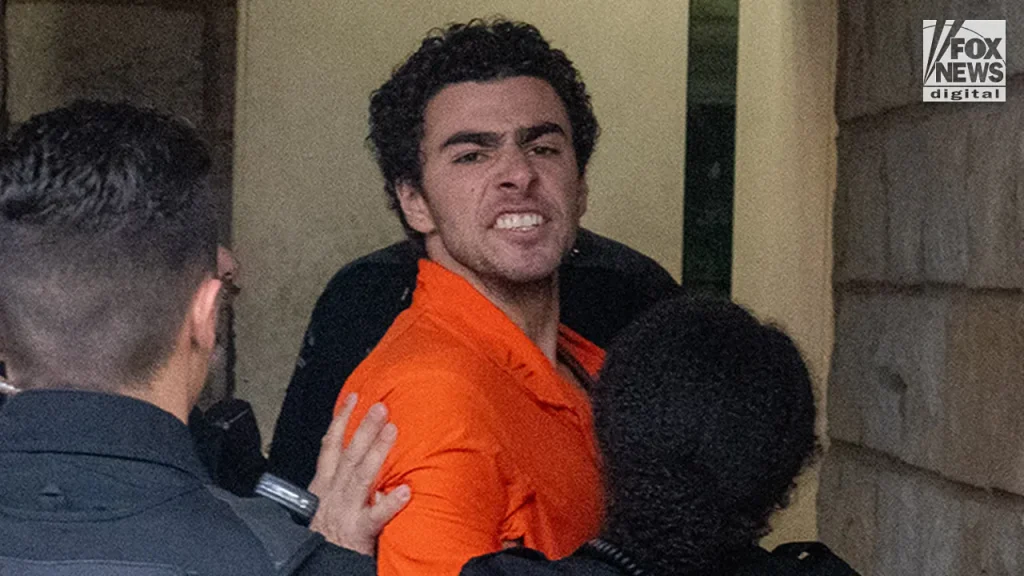The arrest of Luigi Mangione, suspected in the fatal shooting of UnitedHealthcare CEO Brian Thompson, raises complex questions about jurisdiction and prosecutorial approach. While Mangione currently faces state charges, the possibility, though remote, of federal intervention looms. Former prosecutors interviewed by Fox News Digital expressed concerns about Manhattan DA Alvin Bragg’s ability to handle the case impartially, given his perceived history of politically motivated decisions. These concerns stem from Bragg’s swift indictment of Daniel Penny in an unrelated case and his pursuit of charges against former President Trump, actions critics view as influenced by political pressures rather than objective legal analysis.
The primary obstacle to federal involvement lies in establishing a clear federal nexus to the crime. While possession of the “ghost gun” found on Mangione constitutes a federal offense, the penalty associated with this charge pales in comparison to the potential sentence for a state murder conviction. Unless evidence emerges linking the murder to organized crime, drug trafficking, a hate crime, or another federally regulated activity, a federal murder charge is unlikely. The Travel Act, a statute occasionally used in organized crime prosecutions, offers a potential, albeit slim, avenue for federal intervention. However, application of this statute requires demonstrating Mangione’s participation in a criminal enterprise, a threshold unlikely to be met based on currently available information.
The fact that the murder did not occur on federal property further limits the scope of federal jurisdiction. Former prosecutor James Trusty highlighted the need for a clear “hook” to justify federal intervention, suggesting evidence found on Mangione’s seized laptop could potentially reveal such a connection. However, absent a demonstrable link to federal statutes, the case will likely remain within the purview of state authorities. This raises concerns among some legal experts, who argue that Bragg’s past actions indicate a tendency towards politically motivated prosecutions, potentially jeopardizing a fair and impartial handling of the Mangione case.
Andrew McCarthy, a former prosecutor and Fox News contributor, voiced apprehension about Bragg’s ability to handle the case objectively, particularly given the perceived political dimensions of the crime. McCarthy questioned whether Bragg, characterized by McCarthy as a “progressive prosecutor,” could be trusted to prosecute a suspect perceived by some as a “radical leftist” acting against a corporate figure. This concern resonates with the broader debate about the role of political ideology in prosecutorial decision-making. While prosecutors are expected to exercise discretion, critics argue that Bragg’s record suggests a pattern of politically driven choices, raising questions about his impartiality in the Mangione case.
Trusty echoes McCarthy’s concerns, citing Bragg’s handling of the Daniel Penny case and the Trump indictment as indicative of a tendency to prioritize political considerations over a thorough and objective assessment of the facts. Specifically, Trusty points to the speed of the Penny indictment and the decision to pursue charges against Trump after previous administrations declined to do so as evidence of Bragg’s susceptibility to political influence. These actions, according to Trusty, raise legitimate concerns about whether Bragg will allow political factors to taint his prosecutorial decisions in the Mangione case. This potential for bias, Trusty argues, underscores the need for careful scrutiny of Bragg’s handling of the case to ensure a just and impartial outcome.
In conclusion, while the potential for federal charges against Mangione exists, it remains a remote possibility barring the discovery of new evidence linking the crime to a federal offense. The primary focus remains on the state prosecution under the direction of Manhattan DA Alvin Bragg. However, Bragg’s past prosecutorial decisions have fueled concerns about his ability to handle the case impartially, raising questions about the potential influence of political considerations on the pursuit of justice. The case will likely continue to be scrutinized for any signs of bias or political motivation, underscoring the critical importance of maintaining the integrity and impartiality of the judicial process.


